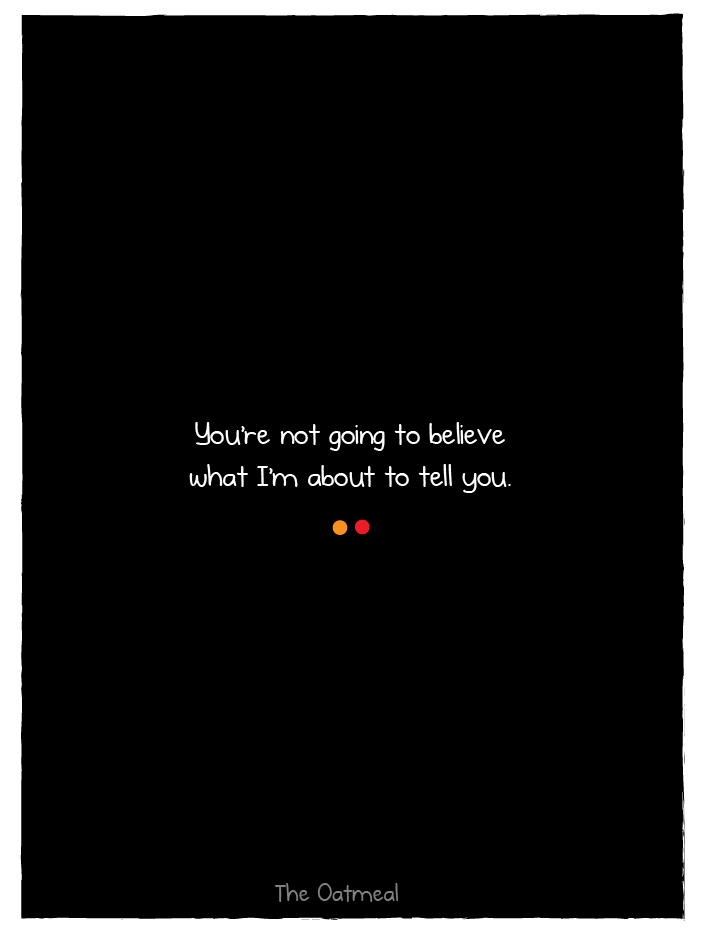Factual Distrust [#21]

I'm currently in the Outer Hebrides (actually, I'm currently somewhere on my way back from them, but that's where I have been for the last two weeks). As a result, I'm dipping into my archive of forgotten almost-posts to make sure that whole New 52 thing keeps on a-rolling.
But I do expect you to believe that part. That's not really what the image above is about. No, the image above is a link to a comic by the ever-brilliant Oatmeal, attempting to explain why it's so damned hard to convince somebody they are wrong. Present all the evidence in the world, be reasonable and clear, provide a bullet-proof argument... and that still won't be enough. There are a bunch of reasons why that is the case, but the big two are these: the backfire effect and the energy-cost conflict. The comic details the backfire effect much better than I ever could, so if you're unaware of it (or even if you know everything about it, to be honest) go and give it a read. You won't regret it.
The energy-cost conflict is a term I invented, so it's unlikely that you know anything about it. Stuart Vyse created a pretty clever illustration to explain why superstitions are a thing for TedEd, which sums it up nicely and is also definitely worth your time. In brief, it takes a certain amount of energy to learn something and a second amount of energy to unlearn it (not to forget it, that's free, but to take what you know and alter it). Our brains are designed to reduce energy expenditure as much as possible, for the simple reason that it helps keep us alive longer. As a result, we're naturally resistant to facts that would cause us to alter what we've learnt.
Combined, these two phenomena create a pretty large obstacle for reasoned debate and progressive change. Once someone, or a group of people, have accepted a certain belief as fact it becomes pretty hard to get them to accept that it isn't; once that belief has become the basis for multiple other beliefs and ideas, it becomes incredibly hard. There isn't much that can be done about this problem, as it affects everyone in the world. The most effective method is to educate people, which is what both of the links above are attempting to do. Personally, as I come to understand the way my own brain attempts to helpfully undermine me, I've found it a lot easier to have productive discussions with people. I've also found that the world is a lot more grey than black-and-white, but that's actually a lot more interesting.
